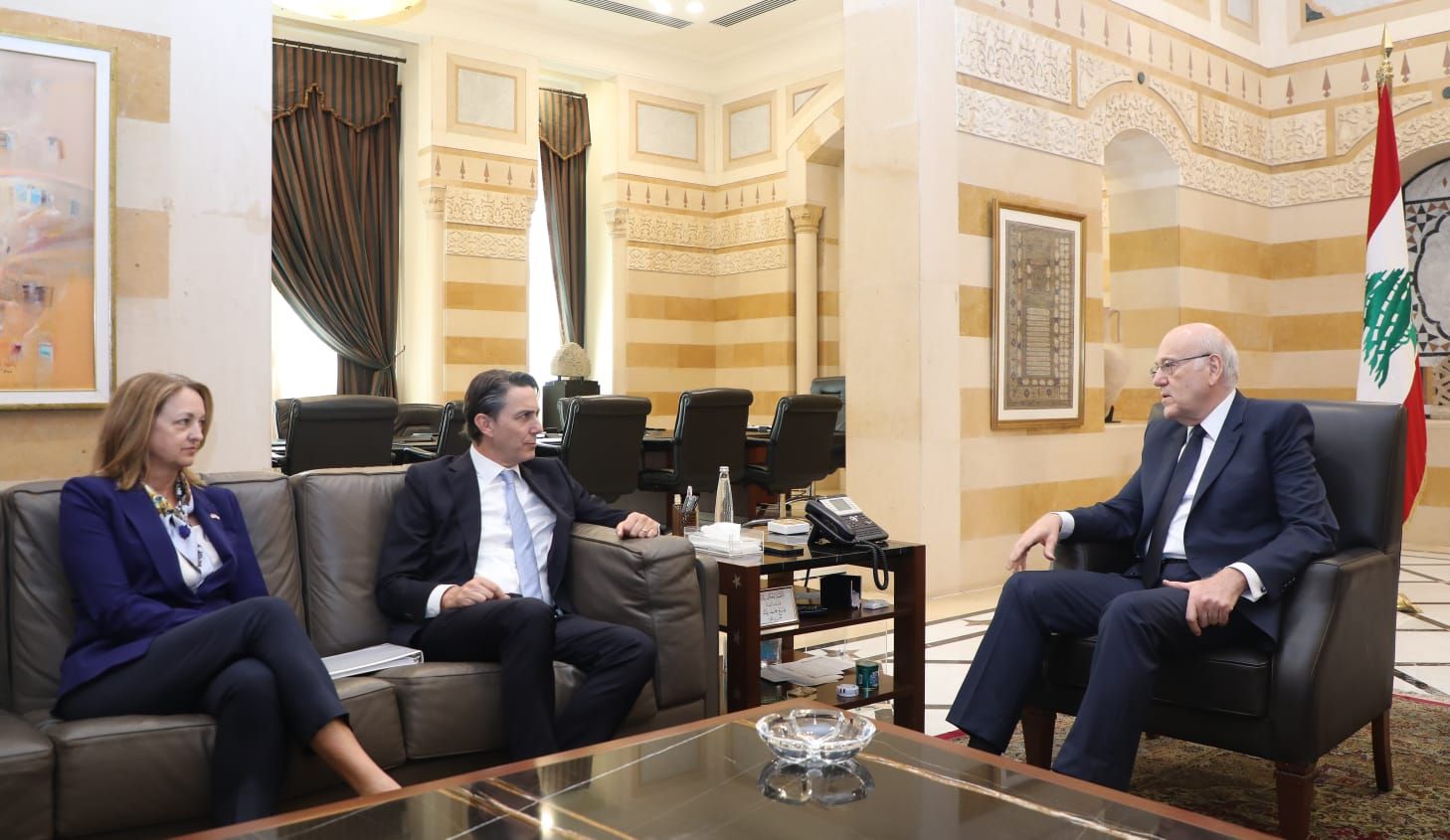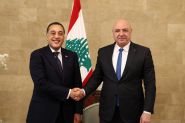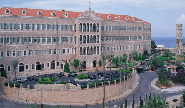
United States envoy Amos Hochstein pleaded on Monday for a firm and transparent implementation of United Nations Resolution 1701 to put an end to the raging conflict between Hezbollah and Israel, though a ceasefire agreement remains complicated amid the surge in violence.
Meeting with Berri
After a meeting with Speaker Nabih Berri in Ain al-Tineh, Hochstein said that Washington wants to end the Israel-Hezbollah war “as soon as possible,” stressing that “it is not in Lebanon's interests to link its fate to other conflicts.”
He underscored that resolution 1701, which ended the 2006 Israel-Hezbollah conflict, would be the basis for a new ceasefire, but would require more than just public commitments from the warring parties.
“We have to know that this is not going to cause another round of conflict in a month or a year or two years. That is why both sides simply committing to 1701 is just not enough” after years of weak implementation.
According to sources quoted by Sky News Arabia, Berri emphasized during his meeting with the US envoy the priority of a ceasefire followed by the implementation of Resolution 1701. He informed Hochstein that “it is possible to return to the agreement regarding a three-week truce.”
These same sources said that Berri told Hochstein that Lebanon could elect a president in the first week of the truce and that the elected president would oversee the implementation of Resolution 1701 and work towards a permanent ceasefire.
Hochstein at the Grand Serail
Caretaker Prime Minister Najib Mikati received Hochstein this afternoon at the Grand Serail, in the presence of US Ambassador Lisa Johnson and the prime minister’s advisor, Ziad Mikati.
During the meeting, the prime minister stressed that “the priority is to achieve a ceasefire and to fully and comprehensively implement Resolution 1701, as it is the cornerstone of stability in the region.” He pointed out that diplomatic efforts are actively underway to reach a ceasefire soon.
Hochstein, for his part, emphasized that "diplomatic efforts are ongoing and serious, and we are working to achieve a ceasefire in the near future.”
“We support the full and comprehensive implementation of Resolution 1701, and all parties must work towards reaching an understanding on how to implement the resolution,” he added.
Hochstein later held talks with Army commander General Joseph Aoun, during which they discussed US support to the Lebanese Army at this critical time the country is facing.
What formula for the implementation of 1701?
On his sixth visit to Lebanon in a year, Hochstein’s task remains complicated, given the conditions of each side. Lebanon is calling for Security Council Resolution 1701 to be implemented, even if it means discussing the details of a long-term plan to guarantee stability in southern Lebanon at a later date, while Tel Aviv is putting conditions for the implementation of 1701.
But what is the formula for the implementation of 1701? According to Israeli and American officials quoted by the Axios website, Hochstein advocates for “a major deployment of Lebanese armed forces in southern Lebanon, with at least 8,000 troops stationed there.”
The American envoy will also propose “strengthening UNIFIL's mandate to help the Lebanese Army prevent the deployment of individuals or armed groups not under the control of the Lebanese government.”
However, Israel has more conditions on the table. Last week, Tel Aviv submitted a document to the US outlining its conditions for a diplomatic resolution to end the war in Lebanon.
This document, sent by Israeli Strategic Affairs Minister Ron Dermer to Hochstein, includes principles that Israel insists must be part of any diplomatic solution regarding Hezbollah.
One of Israel’s key demands is to allow the Israeli army to engage in “active enforcement” to prevent Hezbollah from rearming and rebuilding military infrastructure in southern Lebanon near the border.
Another demand is to grant the Israeli Air Force freedom of operation in Lebanese airspace.
However, these two demands contradict resolution 1701, which mandates that the Lebanese a=Army and UNIFIL enforce the ceasefire between Israel and Hezbollah.
An Israeli official noted that these conditions represent “1701 with increased reinforcement.”
He added, “Our main message is that if the Lebanese Army and UNIFIL do more, the Israeli army will do less, and vice versa.”
A day before Hochstein’s visit, Berri stated that he would “oppose any modification or addition to UN Resolution 1701.”
In an interview with al-Arabiya on Sunday evening, Berri claimed that Hochstein's visit marked “the last chance for the United States to reach a diplomatic solution before the US presidential elections” on November 5.
The year-long war has killed more than 2,400 people in Lebanon and injured over 11,500 others, while forcing nearly 1.2 million people into displacement, according to government approximations.



Comments